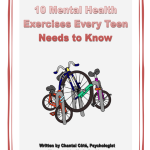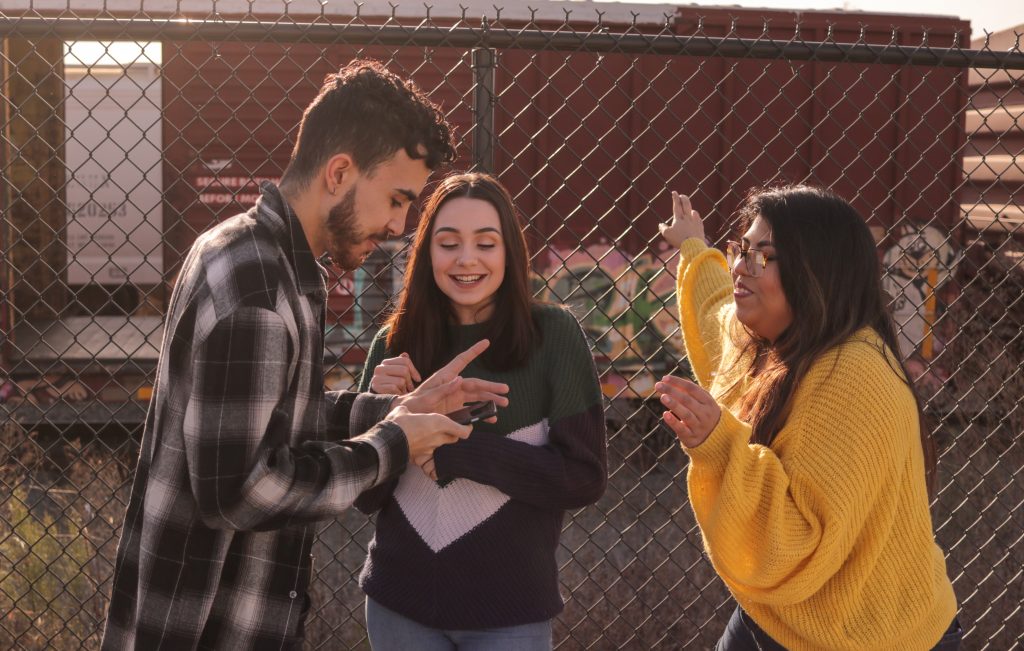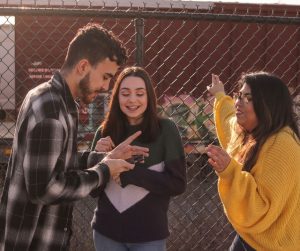7 Wise Friendship Must’s for Teen Girls
7 Wise Friendship Must’s for Teen Girls
This blog post is for teens who may be struggling to know what a “wise” friendship looks like. I have put together a few ideas below, but we would love to hear your ideas as well!
>>> FREE DOWNLOAD: Mental Health Handbook for Teen Girls <<<
An eBook with 10 mental health exercises every teen girl needs to know to:
- Improve focus
- Boost happy hormones naturally
- Cope with trick feelings
- Develop self-compassion
I think it is safe to say most of us have heard the adage, “choose your friends wisely”. What exactly that means, however, is talked about less frequently.

Photo by Gemma Chua-Tran on Unsplash
Choose your friendships wisely… what it DOESN’T mean:
- My friend will never make mistakes.
Everyone makes mistakes at some point, and a friend is no different. Being able to forgive, both ourselves and others, is an important part of healthy communication and friendship.
- My friend and I must have the same interests.
Having interests in common with a friend can be a wonderful thing! That doesn’t mean, however, that you must share a lot of the same interests in order to be friends. Sometimes we can learn the most from people who have different values or interests than us.
- My friend and I will share everything with each other.
There is a greater degree of openness and vulnerability with good friends, but this does not mean we need to share everything with each other. Finding healthy boundaries about what to share, how much to share, and when, is a key part of making wise friendships.
>>> FREE DOWNLOAD: Mental Health Handbook for Teen Girls <<<

Teen Mental Health Handbook
An eBook with 10 mental health exercises every teen girl needs to know to:
- Improve focus
- Boost happy hormones naturally
- Cope with trick feelings
- Develop self-compassion
Choose your friendships wisely… what it DOES mean:
- My friend and I will support each other.
In a healthy friendship, there will be mutual support. This does not mean the support is available 24/7 or that it will always be delivered in your ideal way (different love languages, anyone?), but a good friend will want to listen, understand, and support you in what you may be going through.
- My friend and I are allowed to have boundaries.
Everyone is different and will have different boundaries based on factors like interests, values, activities, time, energy, topics of conversation, and needs. Understanding that a good friend may have different boundaries than you is a sign of a healthy friendship.

Photo by Katy Anne on Unsplash
- My friend and I have mutual respect and honesty.
In the context of people being human, making mistakes, and being so different, a sign of a healthy friendship is being honest with each other and respecting differences. This means both respecting our friends, but also respecting ourselves. A friendship is unlikely to always be 50/50, but it should also not always be one-sided.
- My friend and I have a dynamic friendship.
What I mean by this is that a healthy friendship will have moments of fun, deeper conversation, adventure, support, learning, casual times, and more. If you notice that your friend is always talking about really hard, difficult things, or that maybe you never talk about anything more personal, it may be time to switch it up a bit!
These are just a few ideas about what a wise friendship may or may not look like, but there are many more! If you have any ideas you would like to share, send us a note on Instagram or even e-mail at jessa@pyramidpsychology.com.
Choose those friends wisely 😊
Love,
Jessa
>>> FREE DOWNLOAD: Mental Health Handbook for Teen Girls <<<
An eBook with 10 mental health exercises every teen girl needs to know to:
- Improve focus
- Boost happy hormones naturally
- Cope with trick feelings
- Develop self-compassion

Jessa is a provisional psychologist living and servicing teens and young adults in Calgary, Alberta.
Jessa is passionate about helping people become the best version of themselves and is continually learning how to best support her clients. She has experience with acceptance and commitment therapy (ACT) and cognitive behavioural therapy (CBT), but most importantly she emphasizes the therapeutic relationship.
A safe, authentic relationship is key for therapy to work. Jessa prioritizes compassion and nonjudgmental curiosity. Together, she can find out what matters most to you and how to get there.
If you think Jessa may be a good match for you, please feel free to reach out and set up a free consult or book a session. She is looking forward to hearing from you!
Once a month, she writes a blog article in response to issues she hears from the parents, teens and young adults she connects with. If you have something you’d like to read more on – email ideas and questions to info@pyramidpsychology.com or DM us via Instagram or Facebook.













